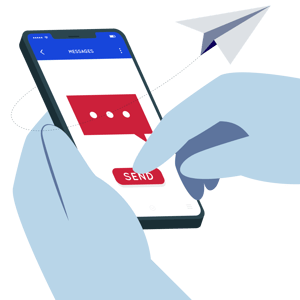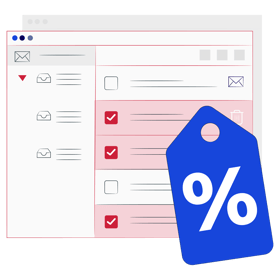As a result of the pandemic, travel brands have had to adapt their strategies and marketing efforts to meet the changing needs of travelers. A key factor that travel brands need to consider is trust, which is a fundamental requirement when selecting a brand. It is a crucial aspect of travel marketing and a determining factor in keeping and growing customers.
Many travel brands assume that offering the best price or unique travel experiences is enough to win travelers' trust. However, recent data obtained from the MODIV mindset survey has shown that trust could make or break a brand. Therefore, the assumption that price and experiences are enough to win travelers' trust is debunked.

According to the MODIV mindset survey, brand trust is among the top three reasons travelers choose one brand over another. Additionally, travelers proactively support brands they trust by paying more, choosing the brand over competitors, and recommending the brand to others. Information and communication from travel brands also have a significant impact on trust. Travelers expect transparency from travel brands, especially during times of uncertainty. Trust is expected to increase in importance for travelers in the next 18-24 months.
There are commercial opportunities tied to gaining and keeping trust, with travelers willing to pay more for a trusted brand. For instance, a trusted brand might keep travelers loyal and make them feel more comfortable traveling again after the pandemic.
Pandora’s [In]Box
In an astounding tally from HubSpot, recent data confirmed the presence of over 4 billion daily email users.
And as of 2023, most marketers send 2-3 emails per day, with only 12% sending a weekly email.
According to MailChimp’s data study of the last few years, hospitality open rates sit an average of 10.25-20.25% open rate and 1.17-3.01% average click-through rate, surpassing industries such as retail, entertainment, and e-commerce.
 New data from OtterText suggests that “97% of Americans use text messaging at least once daily, and 75% of consumers are comfortable receiving SMS messages from brands after opting in.”
New data from OtterText suggests that “97% of Americans use text messaging at least once daily, and 75% of consumers are comfortable receiving SMS messages from brands after opting in.”
With mobile phones being the most popular and most used device globally, it’s no wonder why “90% of SMS messages received are opened within 3 minutes.”
For many, SMS can be the most immediate and impactful marketing channel available, as long as senders master the “sweet spots” for rate of messages, call to actions, and compelling and concise wording.
With the increasing number of hospitality marketers vying for digital mailboxes, it’s going to take a lot more in 2024 than a simple, "Come to the Maldives.” This has led to a rise in experiential marketing:
- Offering memorable, interactive marketing experiences as opposed to standard copy and boilerplate information. Show, don’t tell.
- Leveraging immersive techniques like augmented or virtual reality to allow customers to feel and experience a destination firsthand.
 Alternatively, recipients are also on the look for incentives, discounts, and promotions. SendGrip’s data on millennial recipients showed that “nearly half said an offer or discount has a strong influence on their likelihood of clicking a link in an email.”
Alternatively, recipients are also on the look for incentives, discounts, and promotions. SendGrip’s data on millennial recipients showed that “nearly half said an offer or discount has a strong influence on their likelihood of clicking a link in an email.”
MailChimp suggests reward-based Call to Actions will be key. This can come in the form of early check-in times, room upgrades, and promo codes in exchange for opting-in to a hotel’s email marketing or completing sign-up forms.
The MODIV Take: Prioritize Traveler Trust in Marketing Experiences
Given the importance of trust, travel brands need to prioritize their communication strategies. Travelers need to feel informed and supported throughout their journey, from pre-trip planning to post-travel follow-up. Brands should invest in personalized communication channels such as email, text messaging, and social media to enhance the customer experience.
Equally important is the need for travel brands to be transparent and honest with their customers. Customers can easily detect fake reviews or hyperbolic promises. Brands that invest in being open, honest, and transparent can help to establish trust with their customers.

Here are a few ways that brands can earn trust and build loyalty in hospitality marketing:
Focus on pragmatic aspects: Given that over 67% of travelers' trust in travel brands is based on pragmatic aspects such as value, quality, and reliability, it is important for travel brands to prioritize these factors in their marketing and service offerings. This means that travel brands should be transparent about their offerings and deliver on what they advertise.
Communicate effectively: As 9 out of 10 travelers' willingness to recommend a travel brand is directly related to their trust in that brand, it is crucial for travel brands to communicate effectively and honestly with their customers. Travel brands that are transparent about their pricing, services, and policies are more likely to win customers' trust and loyalty.
Leverage reviews and word-of-mouth referrals: Customer reviews and word-of-mouth referrals play an important role in building trust for travel brands. Brands should focus on delivering exceptional customer service and incentivize customers to leave positive reviews that can help build trust and attract new customers.
Travel brands that prioritize building and maintaining trust with their customers are likely to stand out in a crowded market and earn the loyalty and advocacy of travelers.

